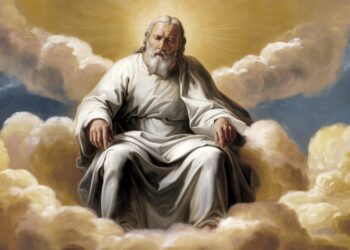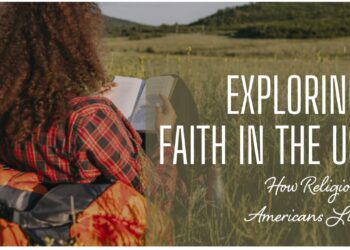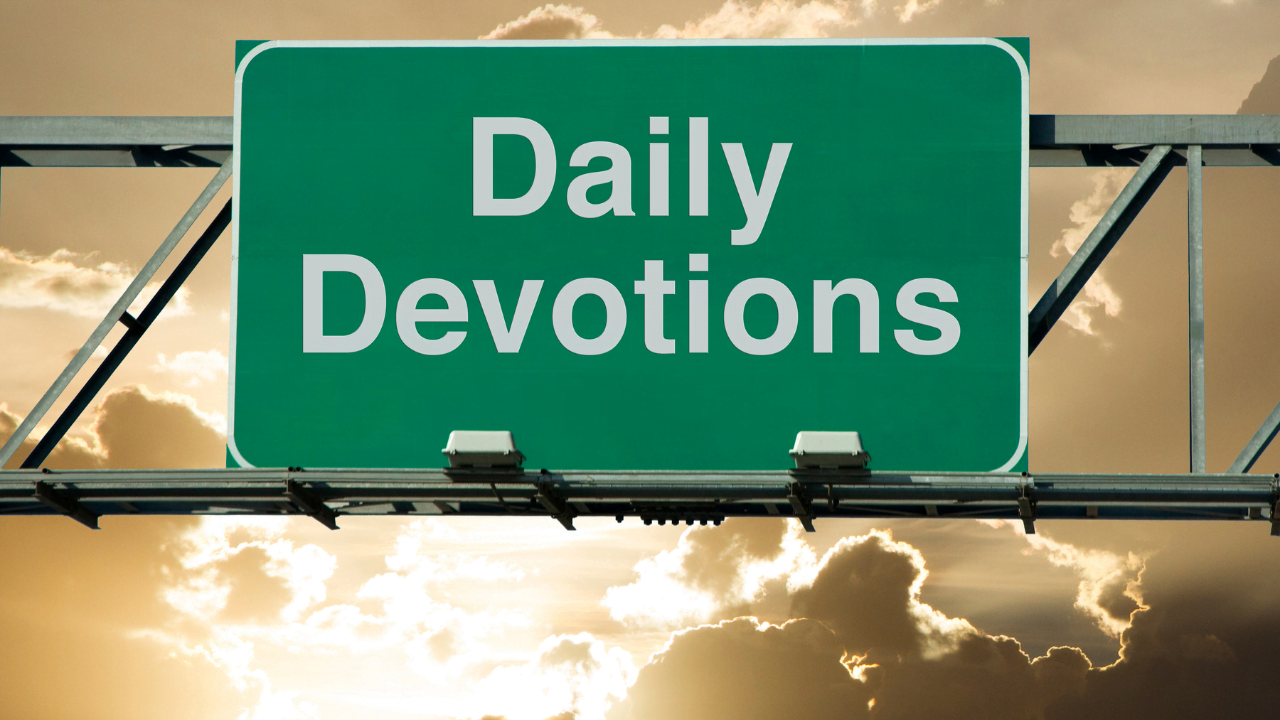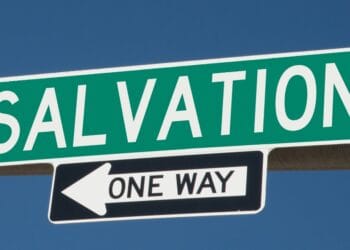No products in the cart.
Church and State Relations: The Intersection of Faith and Government
This post contains affiliate links.
The relationship between church and state in the United States is fundamental to our society. A delicate balance has shaped our legislation, public policies, and cultural norms. The intersection of faith and government profoundly impacts our lives, influencing how we live, the values we hold, and the policies that govern our society.
The United States Constitution’s First Amendment establishes the principle of religious freedom and prohibits the government from establishing a religion or interfering with the free exercise of religion. This principle has created a unique religious pluralism in our country, where people of faith can bring their values and beliefs into the political sphere and work for policies that align with their faith.
Religious individuals are encouraged to engage politically during elections based on their religious convictions. They are motivated to advocate for policies that address social issues and uphold the principles of their faith. The intersection of faith and government becomes crucial as we make decisions that impact society.
Key Takeaways:
- The Constitution’s First Amendment defines the relationship between church and state in the United States.
- Religious freedom allows individuals to bring their values and beliefs into politics.
- Faith influences political engagement and motivates individuals to advocate for policies aligned with their beliefs.
- The intersection of faith and government becomes particularly relevant during elections.
- Understanding the impact of church and state relations is crucial for shaping legislation and public policies.
Perspectives on the Intersection of Faith and Political Engagement
Regarding the intersection of faith and political engagement, diverse perspectives shape our understanding of how these two realms interact. Let’s explore the viewpoints of two notable scholars in this field.
Rev. Marvin McMickle: Politics as a Means of Grace
Rev. Marvin McMickle, a renowned professor of religious studies, firmly believes that politics can be a means of grace when it aligns with the values of religious faith. He emphasizes the importance of religious leaders advocating for policies that address social issues and uphold the principles of their faith. For Rev. McMickle, engaging politically based on one’s religious convictions is an opportunity and a responsibility.
Rev. McMickle underscores the significance of caring for those in need and working toward unity as essential facets of faith. He believes that when political engagement is rooted in these values, it can be a powerful force for positive societal change. Religious individuals can make a tangible difference in the political arena by advocating for social justice, supporting marginalized communities, and championing policies that reflect the core teachings of their faith.
Beth Gerhardt: Implications of Faith and Politics
Contrasting with Rev. McMickle’s perspective, Beth Gerhardt, a respected theology professor, offers a different lens through which to view the intersection of faith and political engagement. While she acknowledges that faith influences our political views, Gerhardt urges caution against conflating political positions with the principles of one’s faith.
According to Gerhardt, it is crucial to approach political discussions with an open mind and to recognize that individuals of different political ideologies can hold sincere faith commitments. She emphasizes the danger of using faith as a tool for political influence, as it can lead to divisiveness and judgment within communities of faith.
Gerhardt calls for a respectful appreciation of varying perspectives and a commitment to dialogue that upholds the dignity of all individuals, regardless of their political beliefs. By separating political ideologies from the core principles of faith, Gerhardt encourages us to foster unity, understanding, and compassion in our diverse political landscape.
- Rev. Marvin McMickle believes that politics can be a means of grace when it aligns with the values of religious faith.
- Beth Gerhardt cautions against conflating political positions with the principles of one’s faith, emphasizing the importance of respectful dialogue and understanding.
The Power of the Sword and the Power of the Keys
The sword’s power refers to the authority given to the government to protect life, enable the cultural mandate, and provide a platform for the church’s work. Governments are responsible for establishing and upholding justice, ensuring peace and order, and protecting the rights and dignity of individuals as image-bearers of God.
On the other hand, the power of the keys refers to the authority given to churches to testify to their faith, promote Jesus’s message, and guide their life members’ spirits. Churches play a crucial role in preserving and promoting religious values and providing moral guidance within society.
Defining Church and State Relationships
The relationships between religious organizations or authorities and secular government are called “church and state” relationships. However, there has been ongoing debate about this terminology, as it primarily stems from the context of Christian traditions and may need to be more inclusive of other religions.
Some scholars and experts suggest using the term “religion and state” instead, which recognizes the individual aspect of religion and its role in shaping society. This broader terminology acknowledges that various religious beliefs and practices contribute to the complex dynamics between faith and government.
Recognizing the Diversity of Relationships
It is important to note that the relationships between religion and the state can differ significantly across countries and cultures. Various factors shape these relationships, such as historical influences, cultural norms, and legal frameworks.
In some countries, religious institutions may play a prominent role in governance and have a close relationship with the state. This can be seen in the case of state churches, where the government officially recognizes and supports a particular religious institution, such as the Church of England in England.
In other countries, there may be a clear separation between religion and the state, with secularism as the guiding principle. Secular states prioritize the government’s neutrality in matters of religion, ensuring that no particular religious belief is favored or imposed on the population.
The Interplay of Church and State
Regardless of the terminology used, the relationships between church and state or religion and state profoundly impact society. These relationships determine how religious organizations and authorities interact with secular institutions, influence public policies, and shape the cultural framework within which individuals and communities live.
New Problems and the European Construction
Recently, societies have faced new challenges in the relationship between religion and the state. These challenges have emerged in various forms, posing significant questions and complexities that must be addressed. Three prominent factors that have brought these issues to the forefront include bioethics, morality laws, and cultural diversity.
Bioethics:
- Bioethical dilemmas such as stem cell research, genetic engineering, and end-of-life decisions have sparked debates concerning the role of religion in shaping legislation and societal norms.
- The clash between religious beliefs and scientific advancements has created a need for society to navigate the boundaries between faith-based values and emerging medical technologies.
Morality Laws:
- The enactment of laws that govern personal choices, such as abortion rights, marriage equality, and assisted suicide, has spurred contentious debates rooted in religious doctrines and principles.
- Whether personal moral choices should be dictated by religious beliefs or left to individual autonomy is a crucial contention within the religion-state relationship.
Cultural Diversity:
- The increasing cultural diversity within societies has raised complex challenges regarding religious freedom, secular values, and the integration of immigrant populations.
- The coexistence of multiple religious worldviews, alongside secularism, has forced nations to address cultural clashes and find a delicate balance that respects religious freedom while upholding the principles of a secular state.
In some secular states, the legitimacy of using religion as a basis for lawmaking in a democracy is contested. It raises the question of whether religious beliefs should be given preference in shaping legislation that affects the entire population or whether secular principles should prevail to ensure equal treatment for all.
Furthermore, the European Union influences the relationship between religion and the state in European countries. The EU promotes religious freedom and encourages the impartiality of public powers. It provides a framework within which member states can navigate the complexities of the religion-state relationship in a European context.
Church-State Relationships in Western Europe
Church-state relationships in Western Europe are incredibly diverse, each country having its unique arrangement. From state churches in Northern Europe to pillarized cultures in the Netherlands and Belgium, the interactions between religious institutions and the state vary widely.
For example, in England, there is the Anglican establishment, which recognizes the Church of England as the official state church. In Germany, a confessional state acknowledges both the Catholic and Protestant faiths. Meanwhile, countries such as Italy, Spain, and Portugal have privileged Catholic churches.
The relationships between church and state are heavily influenced by historical context and the search for national identity. These factors shape the way religious institutions are recognized and integrated within society.
One significant concept in church-state relationships, particularly in countries like France, is laicity, also known as secularism. In France, there is a strict separation between religion and the state, with a commitment to religious neutrality in the public sphere.
In summary, church-state relationships in Western Europe encompass various arrangements and vary from country to country. Understanding the historical, cultural, and legal factors that shape these relationships is crucial in comprehending the complexities of religious institutions and their interactions with the state.
The Ideal Type of Laicity
In church-state relationships, an important concept to consider is laicity. Laicity can be defined as a commitment to refraining from establishing an official religion or imposing religious standards on society through civil law. It is grounded in religious neutrality and individual freedom of religion, aiming to safeguard the diversity of beliefs and philosophies within society and protect the rights of conscience and thought.
The ideal type of laicity goes beyond mere tolerance; it respects and values all beliefs, refraining from privileging or imposing any particular belief system on others.
Laicity is the foundation for laws concerning religious liberties and church-state relationships in numerous European nations. It functions as a mechanism for promoting impartiality and ensuring the freedom to practice any religion or no religion at all. By upholding the principles of laicity, societies can create an inclusive environment that respects the autonomy of individuals in matters of faith and fosters a harmonious coexistence of diverse religious and secular perspectives.
Conclusion
The intersection of faith and government plays a crucial role in shaping our society. By examining the complex relationship between church and state, we can better understand how legislation, public policies, and cultural norms are influenced. This relationship varies across countries and cultures and is influenced by historical, legal, and social factors. It is a subject of ongoing debate and discussion.
Understanding the delicate balance between religious freedom and secular governance is essential for individuals, religious leaders, and policymakers. By engaging in respectful and open dialogue, we can work towards creating an inclusive relationship between faith and government. This involves navigating the complexities of religious pluralism and ensuring that all individuals, regardless of their beliefs or lack thereof, have equal rights and opportunities within the framework of our democratic societies.
As we continue to explore the intricacies of church and state relations, we must strive to uphold the principles of religious freedom and the impartiality of public powers. Balancing diverse individuals’ and communities’ rights and values is challenging.
Still, we can build a society where faith and government coexist harmoniously by fostering understanding, empathy, and cooperation. Only through collaboration and a commitment to respect can we forge a path that honors both religious convictions and the principles of our secular democracy.
FAQ
What is the relationship between church and state in the United States?
The relationship between church and state in the United States is defined by the establishment clause of the Constitution’s First Amendment, which prohibits the government from establishing a religion or interfering with the free exercise of religion.
Why is the intersection of faith and government relevant during elections?
The intersection of faith and government is particularly relevant during elections, as religious individuals are encouraged to engage politically based on their religious convictions and work for policies that align with their faith.
What do religious scholars say about the role of politics in religious faith?
Rev. Marvin McMickle, a professor of religious studies, believes that politics can be a means of grace when it aligns with the values of religious faith, such as caring for people in need and working towards unity. On the other hand, Beth Gerhardt, a theology professor, suggests that while faith should inform political views, it is crucial to avoid conflating political positions with the principles of one’s faith.
What is the power of the sword and the power of the keys?
The sword’s power refers to the authority given to the government to protect life, enable the cultural mandate, and provide a platform for the church’s work. The power of the keys refers to the authority given to churches to testify to their faith, promote the message of Jesus, and guide the spiritual life of their members.
What is the term commonly used to describe the relationships between religious organizations and secular government?
The term commonly used to describe the relationships between religious organizations or authorities and secular government is “church and state.” However, there has been debate about the terminology, as it is primarily based on the context of Christian traditions and may need to be more inclusive of other religions.
What challenges do societies face in the relationship between religion and the state?
Recently, societies have faced new challenges in the relationship between religion and the state, such as bioethics, morality laws, and cultural diversity. These issues have brought into question the role of religion in shaping legislation and societal norms.
How do church-state relationships vary across different countries in Western Europe?
Church-state relationships in Western Europe vary from state churches in Northern Europe to pillarized cultures in countries like the Netherlands and Belgium. Each country has its unique arrangement, shaped by the historical context and search for national identity.
What is laicity?
Laicity can be described as a refusal to establish an official religion or impose religious standards on society through civil law. It is based on religious neutrality and individual freedom of religion, aiming to ensure the pluralism of beliefs and philosophies within society.
Why is understanding the intersection of faith and government crucial?
Understanding the intersection of faith and government is crucial for individuals, religious leaders, and policymakers, as it involves navigating the delicate balance between religious freedom and secular governance principles. By addressing these issues with respect and open dialogue, societies can work towards creating an inclusive and harmonious relationship between faith and government.
Source Links
- https://rochesterbeacon.com/2018/11/02/the-intersection-of-faith-and-politics/
- https://www.thegospelcoalition.org/essay/the-relationship-of-church-and-state/
- https://www.sciencedirect.com/topics/social-sciences/church-and-state
This post contains affiliate links.










